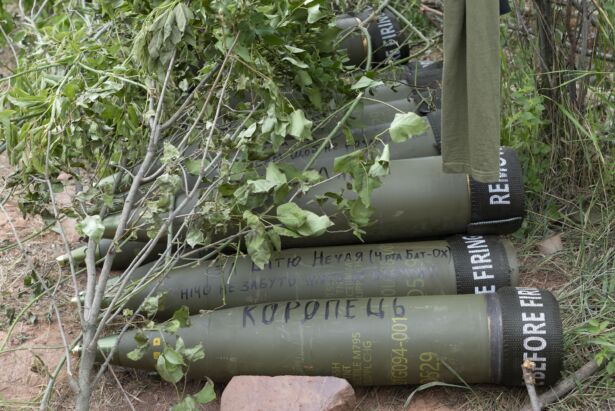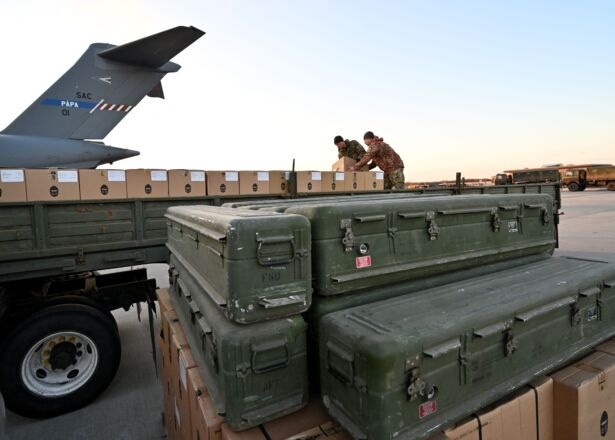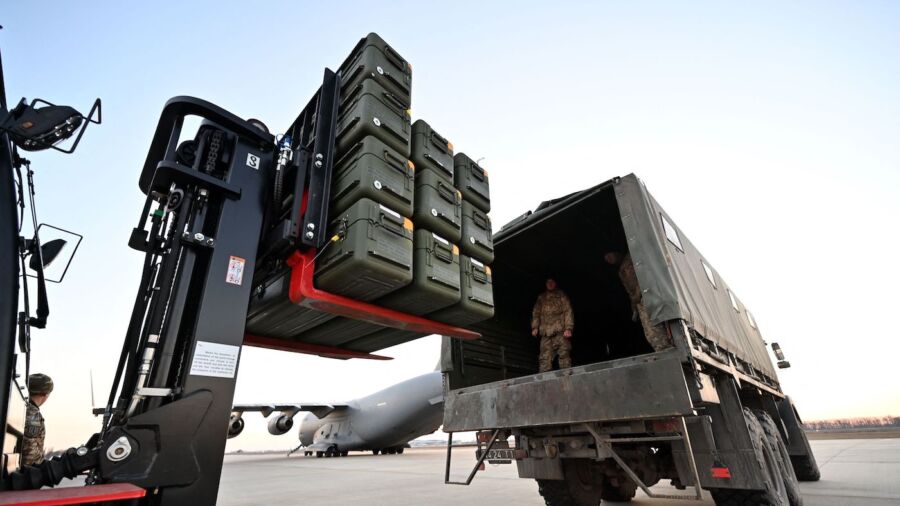Many of the weapons and supplies intended for the front lines in Ukraine have wound up in the hands of arms traffickers and other criminal organizations, according to a newly-released report by the Department of Defense’s inspector general.
Last fall, the DOD inspector general circulated an internal report, finding problems accounting for the weapons and aid the United States has been sending to Ukraine.
The 19-page report (pdf) was published on Oct. 6, 2022, and was originally marked “SECRET//NOFORN,” indicating a classified document not to be shared with foreign nationals. It has since been declassified and released to the Heritage Foundation’s Oversight Project last week following a Freedom of Information Act (FOIA) request.
The report highlighted a number of cases of U.S.-donated weapons and equipment turning up in illicit settings.
In one June 2022 incident, the Ukrainian SBU intelligence service reportedly caught a group of arms traffickers selling weapons and ammunition stolen from the front lines in southern Ukraine.
In another June 2022 incident, the SBU reportedly caught Ukrainian criminals posing as members of a humanitarian organization that distributed bulletproof vests. Rather than distributing the vests, the group is accused of illicitly importing and selling them to Ukrainian forces. A member of this criminal group was found to possess a trove of these vests worth $17,000.
In one incident in August of 2022, the SBU caught a Ukrainian volunteer battalion taking more than 60 rifles and almost 1,000 rounds of ammunition and illegally storing them in a warehouse, presumably to sell on the black market at a later point in time.
Beyond black market reselling, the loose protocols for distributing weapons and aid in Ukraine have attracted Russian actors looking to turn these weapons against the Ukrainian side.
In a June 2022 episode, the SBU interrupted the operations of a criminal organization believed to have been led by a Russian official. The criminal group had been using forged documents to gain entry into a Ukrainian volunteer battalion to procure weapons. This Russian-backed group had allegedly obtained grenade launchers and machine guns with the perceived intent to “conduct destabilizing activities.”

US Has Limited Ability to Track Ukraine Aid
The inspector general report found one of the issues contributing to this accountability problem is the fact that U.S. officials were unable to conduct end-use monitoring (EUM) of the donated equipment. The report attributed this lack of EUM tracking by U.S. officials to a limited U.S. presence within Ukraine and difficulty tracking the many thousands of small pieces of equipment sent to the country.
“Intelligence methods provide some accountability for observable platforms, such as missiles and helicopters, but smaller items, such as night vision devices, have limited accountability,” the report states.
The ongoing fighting between Russia and Ukraine, which has prompted the numerous tranches of U.S. and Western military aid for Ukraine, has also made it dangerous for U.S. officials to conduct the kind of in-person EUM tracking needed to monitor much of the equipment that has been sent.
The Oct. 6 report stated that the DOD inspector general’s office is not making any specific recommendations to improve EUM tracking for weapons and equipment sent to Ukraine because the DOD had made some efforts to that end. On Oct. 30, a Pentagon official told reporters that personnel with the DOD’s Office of Defense Cooperation and the defense attaché for Ukraine had entered the country to resume “on-site inspections to assess weapon stocks in country whenever and wherever the security conditions allow.”

Calls For Ukraine Aid Oversight
In addition to the examples of weapons and equipment being diverted to black market sales, the DOD has identified multi-billion dollar accounting errors in the aid it has allocated so far to Ukraine.
As the U.S. continues to allocate tens of billions in taxpayer dollars in Ukraine-related aid, some lawmakers have called for more oversight as to how this aid is being used.
On June 14, the Republican-controlled House of Representatives passed a version of the 2024 National Defense Authorization Act (NDAA) that includes a provision establishing a special inspector general for Ukraine-related assistance.
President Joe Biden has opposed calls to implement a special inspector general for Ukraine. In a July 10 statement of administrative policy (pdf), the Biden White House said the new inspector general position proposed in the 2024 NDAA would be “unnecessary and unprecedented, as oversight of U.S. assistance for the benefit of a country’s people is already provided by the Inspectors General for the Department of State and United States Agency for International Development.”

